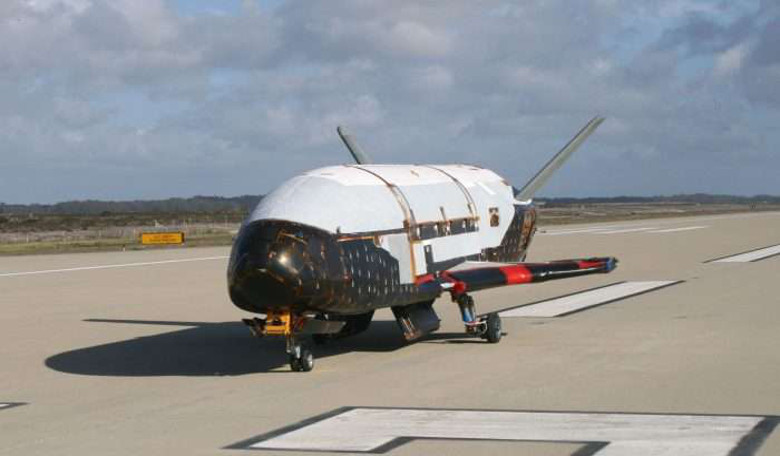After nearly two years in orbit conducting a classified mission, the U.S. Air Force’s X-37B unmanned space plane landed at NASA’s Kennedy Space Center in Florida yesterday.
Built by Boeing, the U.S. military's experimental X-37B, which has overtones of the space shuttle design, blasted off in May 2015 from nearby Cape Canaveral Air Force Station aboard an Atlas 5 rocket that was built by United Launch Alliance.
Since then it has spent 718 days in orbit, breaking the endurance record set by a previous X-37B flight of 614 days.
“The hard work of the X-37B OTV team and the 45th Space Wing successfully demonstrated the flexibility and resolve necessary to continue the nation’s advancement in space,” said Randy Walden, the director of the Air Force Rapid Capabilities Office.
“The ability to land, refurbish, and launch from the same location further enhances the OTV’s ability to rapidly integrate and qualify new space technologies.”
Rumours abound as to the true purpose of the reusable, solar-powered X-37B, however according to the U.S militaries X-37B Orbital Test Vehicle (OTV) Fact Sheet, the OTV “is an experimental test program to demonstrate technologies for a reliable, reusable, unmanned space test platform for the U.S. Air Force.”
It further states that “the primary objectives of the X-37B are twofold; reusable spacecraft technologies for America’s future in space and operating experiments which can be returned to, and examined, on Earth.”
It was the fourth mission for the X-37B and the Air Force says it is preparing to launch its fifth top-secret X-37B mission from Florida later this year.











